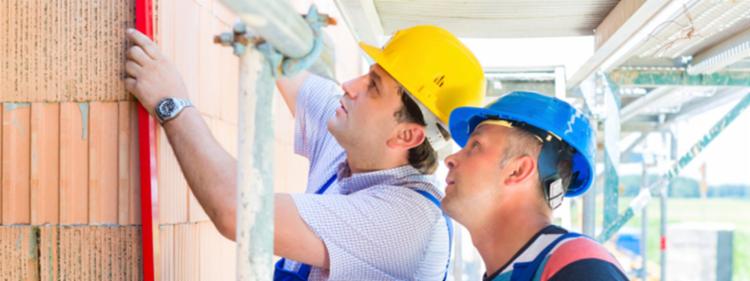What You Need to Know About Buying a House with Defects

Some folks look at a run-down home in need of major TLC as a fun project to occupy weekends. Others are attracted to the low asking prices many sellers want for a home with significant defects.
Many buyers fall in love with a specific home or neighborhood, only to discover the property has substantial problems just prior to signing that purchase agreement. Whichever camp you fall into, there are several factors to keep in mind when you buy a house that requires vital repairs, including having an affordable home insurance policy.
Consider Your Financing
If you have already applied for and received pre-approval for a VA, HUD or FHA loan, you may need to secure different financing for a home with problems in the foundation, roof or other important features. These government-backed mortgages require any home purchased with them to be structurally sound.
If your financial institutuion agrees to underwrite the loan on a "fixer-upper," it may do so with the stipulation that you pay a higher interest rate or make a significantly higher down payment. This is to prove to the lender that you are serious about making improvements. In any case, consider the up-front financial ramifications of buying a home in need of repairs.
Invest in a Professional Home Inspection
Many mortgage companies and lenders require an inspection before they will sign off on any home loan. An inspection can cost anywhere from $200 to $500, but it is a relatively small investment that can save you thousands of dollars down the road, as well as the headaches of discovering significant problems after you've already moved in. Some sellers will pay for the cost of an inspection, so it never hurts to ask. If not, you'll have to find your own.
Real estate agent Daryl Bronniche said that, like him, "Most agents should have two or three inspectors they trust and work with on a regular basis," he said. "Ask your agent if they can refer you to an experienced, licensed inspector."
An inspector will look for:
- Signs of termite infestation
- Cracks in the foundation
- Mold in the walls, ceiling and floors
- Proper insulation
- Problems in the heating, air conditioning and water heater
- The condition of the roof
- Issues with the electrical system and any appliances
Any defects found during the inspection process can be used as leverage in the negotiation process. If you make a decent offer on the house, Bronniche said it can be with the stipulation that the seller make the needed repairs themselves. If the seller is unwilling to pay for the costs of repairs, you need to consider what that means for you.
Have a Construction Company Estimate the Costs of Repairs
If the buyer refuses to make the repairs, which is quite often the case when purchasing a bank-owned home or one that is in the foreclosure process, it's a good idea to get an estimate of what it will cost you to fix the place up. Repairing a home's foundation, for example, can be quite expensive. Construction consultant Lee Alley said most companies will give you an estimate for free.
"You should probably get two or three estimates from different outfits," Alley advised. "One guy might charge you a lot more thant the next guy for the same job."
If you're handy around the house, and plan on doing some of the repairs yourself, such as replacing an old roof or some broken windows, you will want to price out the costs of materials before making an offer on the house. Factor any costs you will have into the purchase price.
Identify Your Insurance Needs
Many homes with significant structural problems are not exactly "move-in ready" when you purchase the property. It may take several weeks or even months for the needed repairs to be completed. This has several consequences in terms of homeowners insurance. Insurance is available, but it's far from typical.
You may not get the same levels of coverage you would from a standard homeowners insurance policy. And not all insurance providers cover homes without owners living in them. So you may have to shop around for insurers or carriers licensed outside your state.
In these cases, it's a wise decision to enlist the services of an independent insurance agent, such as those in our network. These agents have years of experience working with insurance providers to find their clients the best home coverage at the most affordable rates.
You don't want to put all the work and investment into fixing up your home, only to discover your insurance company will not cover damage resulting from a structural defect. You need an insurance policy that will protect your investment. Whenever you buy a home in need of TLC, contact an agent near you who can help you find the coverage you need at a price you can afford.
